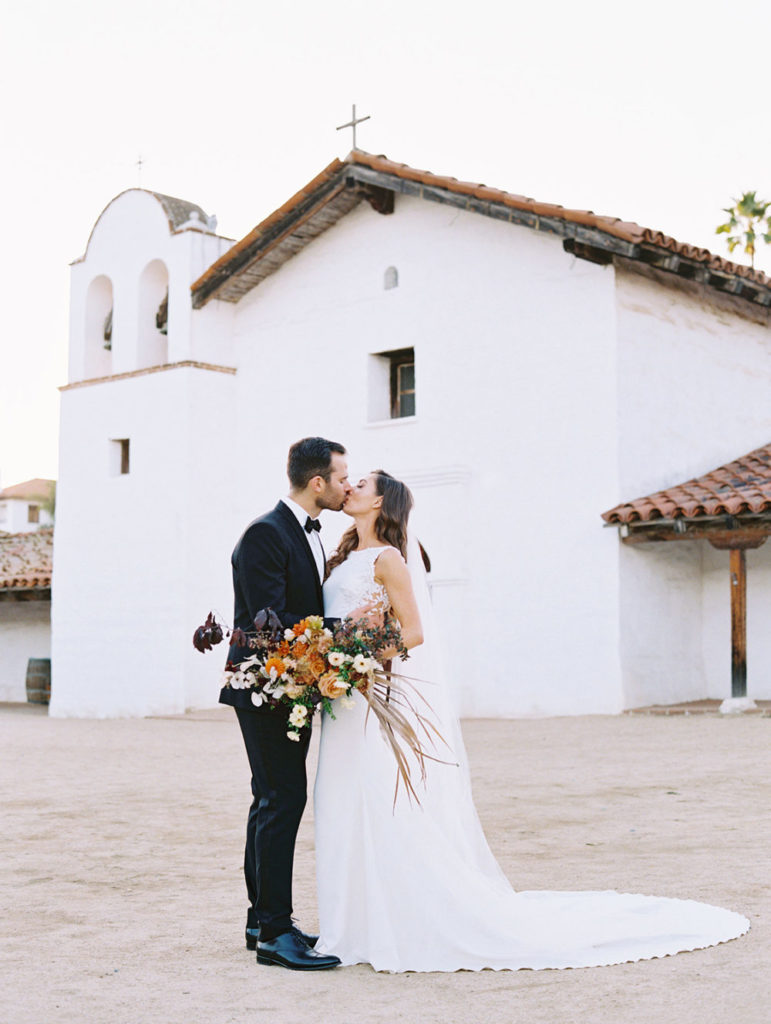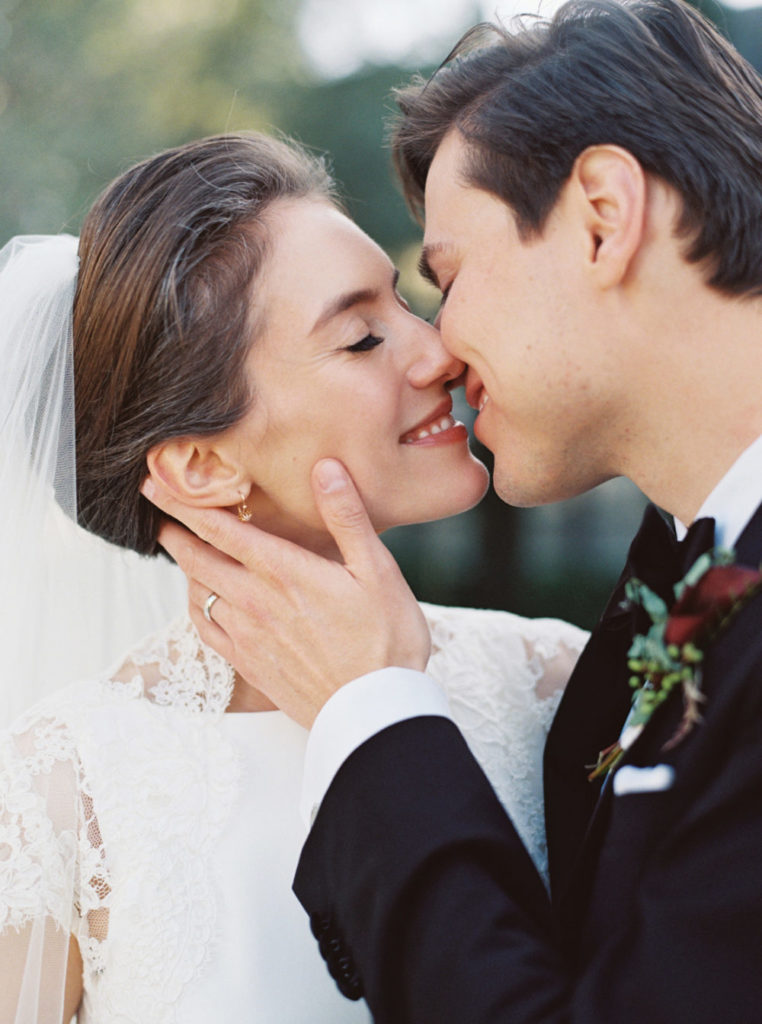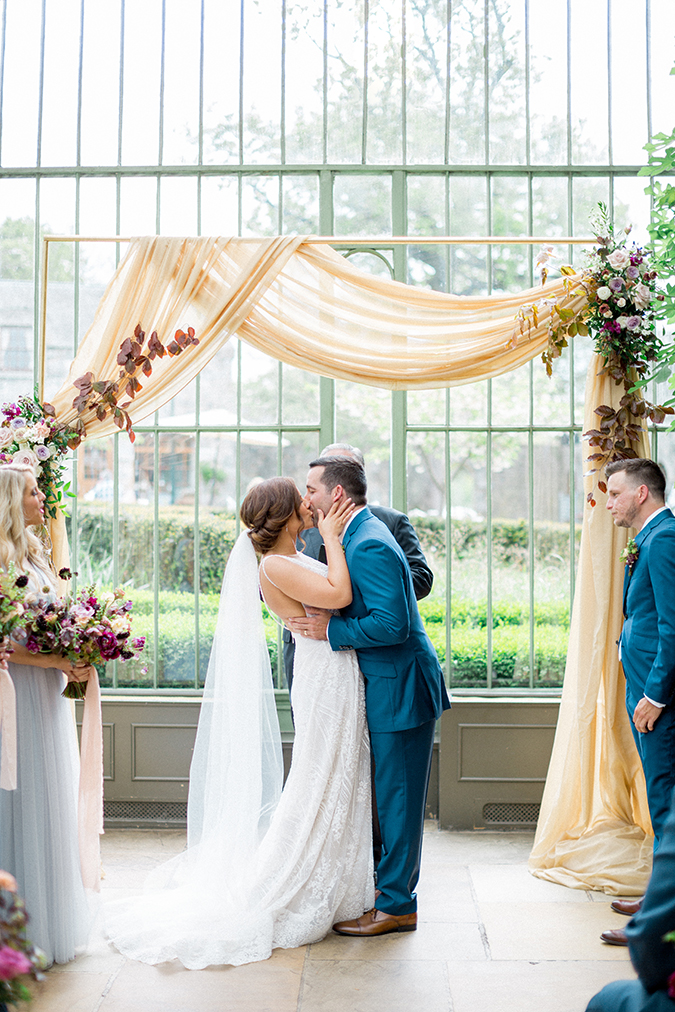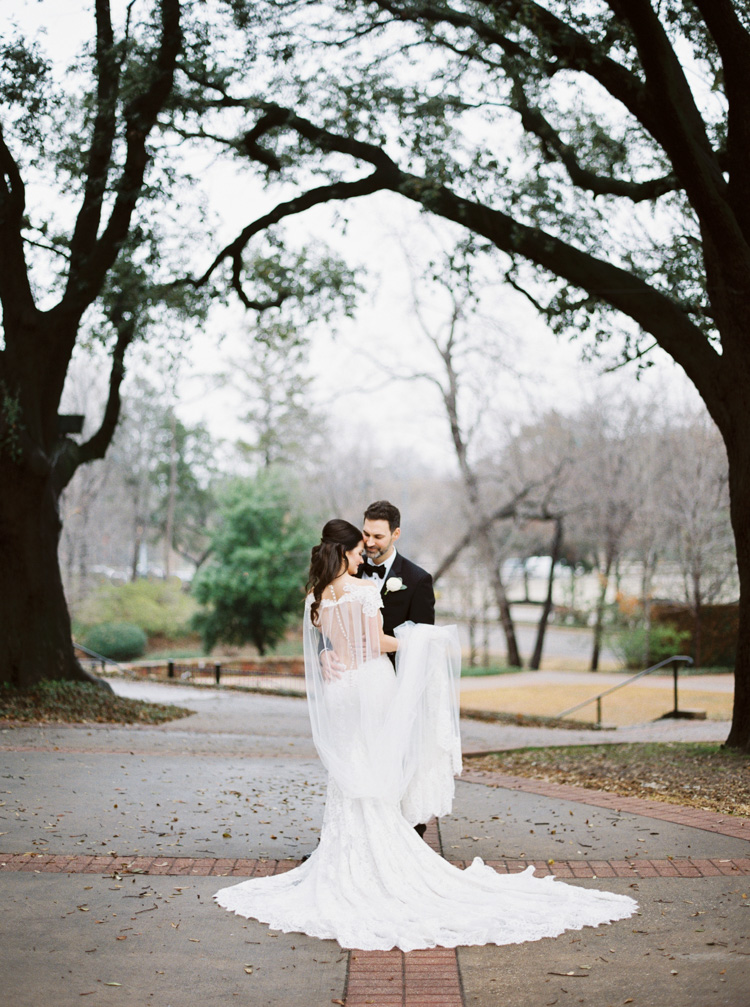So you've made the beautiful transition from dating to engaged! Congratulations! If you're planning to tie the knot on the Emerald Isle then there are a few things you have to consider before you start throwing down deposits left, right and centre though. In Ireland, there are three types of wedding ceremony - religious (catholic, protestant, etc.), civil (done by a state representative - a registrar) and secular (non-religious). Regardless of the type of ceremony you opt for, there are certain legal steps you have to take before the walk down the aisle cements you as newlyweds! We give you a rundown of the legalities of getting married in Ireland and things you need to know before the big day!
Religious
 This Modern Romance
This Modern Romance- The most common religious ceremonies in Ireland and Protestant are Catholic, because of this the below advice will be centred around that.
- If you’re planning to have a religious ceremony, then holding the ceremony in the parish that you (or your partner) currently are/used to be a part of as a child increases the chances of booking a definitive date and priest to perform the ceremony.
- While it is possible to get married in a parish you've never been a part of; there may, however, be more hoops you’ll be required to jump through. You may not be considered as high of a priority for certain dates than couples already active in the parish.
- Before the church will approve the marriage, couples have to complete a Marriage Preparation Course and provide a certificate to the priest in advance of the wedding.
- Not all religious ceremonies have to take place in a church or other religious type building. There are some ceremonies that fall under the religious category can happen in hotels and other bespoke venues. Spiritual Ceremonies falls under the religious category that respects and acknowledges all beliefs. It's important to note that although certain religious bodies may fall under this category, they might not be willing to facilitate this so it's vital to check in advance if it is something that is important to you!
Civil
 This Modern Romance
This Modern Romance- Civil ceremonies are performed by civil registrars from Monday to Friday only, never at weekends.
- Civil ceremonies, like religious ceremonies, can only be held in certain venues. If you want to marry at a venue outside of the registry office, check that the venue, and the specific room you want the ceremony in, are licensed for civil ceremonies, or you will have to organise this yourself.
- There is an additional fee for a civil marriage held in a venue other than a registry office so it’s important to consider if you want to pay extra for a ceremony in a venue or just put that money towards the reception.
Secular
 Brosnan Photographic
Brosnan Photographic- In a secular wedding, the form of the ceremony is flexible and led by the wishes of the couple; this can include poetry, readings, vows, music and traditions according to your preferences. Each celebrant will have templates that you can review and adapt and will assist in the development of your celebration.
- A religious or secular ceremony must be performed in the presence of two witnesses who are both over 18 years of age. At the end of the ceremony, the solemniser, the couple, and the witnesses must all sign the MRF.
- If you have booked a celebrant to perform your ceremony, then it may be a smart idea to ask them if can they solemnise the marriage (as in sign the paperwork). Don’t assume that everyone who holds the title of celebrant has this authority or you may get caught off guard later down the line!
Everybody
 Shannon Skloss Weddings
Shannon Skloss Weddings- Getting legally married in Ireland costs a standard fee of €200. However, if you opt to have your ceremony outside of a registry office, this fee will be increased slightly.
- Couples have to give their intention to marry at least three months before they plan to do so. This notification has to be given in person to any Registrar (the official responsible for keeping records), whether you want to be married in a religious, secular, or civil ceremony.
- It's also highly recommended that you give your intention to marry well in advance of the three-month mark, as these offices tend to be busy at certain times during the year, and you may not be guaranteed an appointment right away.
- After confirming an appointment with a Registrar there are certain documents that will be necessary to get in order so that the marriage can take place, these can differ whether you are having a religious ceremony or not. In general, these documents include PPS number, passport, and birth certificate in either English or Irish.
- If you are having a religious wedding then you’ll additionally need your baptismal certificate, confirmation certificate and a letter of freedom from each parish you have lived in since the age of 18.
- If you have been widowed, divorced, or have had a previous marriage annulled, you will need to bring a range of additional documents. These include; final divorce decrees in respect of all previous divorces if divorced, final decree of nullity and a letter from the relevant court confirming that no appeal was lodged, deceased spouse's death certificate and your civil marriage certificate if either of you is widowed.
- After your wedding, you can go to your nearest Registrar of Births, Marriages and Deaths to order copies of your marriage certificate, these cost €20 each.
- A Marriage Registration Form (MRF) is like a marriage licence. It gives authorisation for a couple to marry and you require one in order to get married in Ireland. As long as there is no legal reason that would prevent the marriage, the Registrar will issue you with an MRF. If you bring all the documentation and information required to the meeting with the Registrar, the Registrar may be able to issue the MRF immediately. It's smart to be as well researched and prepared as possible for what you'll need!
- If the marriage doesn't take place within six months of the date of marriage given on the MRF, a new MRF will be required if you still intend to get married. You'll be required to repeat the notification process.
This may all seem a little overwhelming but in reality, if you're well prepared and ready to jump into the legal requirements headfirst then it will be over and done with before you know it and you can get back to planning the fun stuff!
- Grainne

